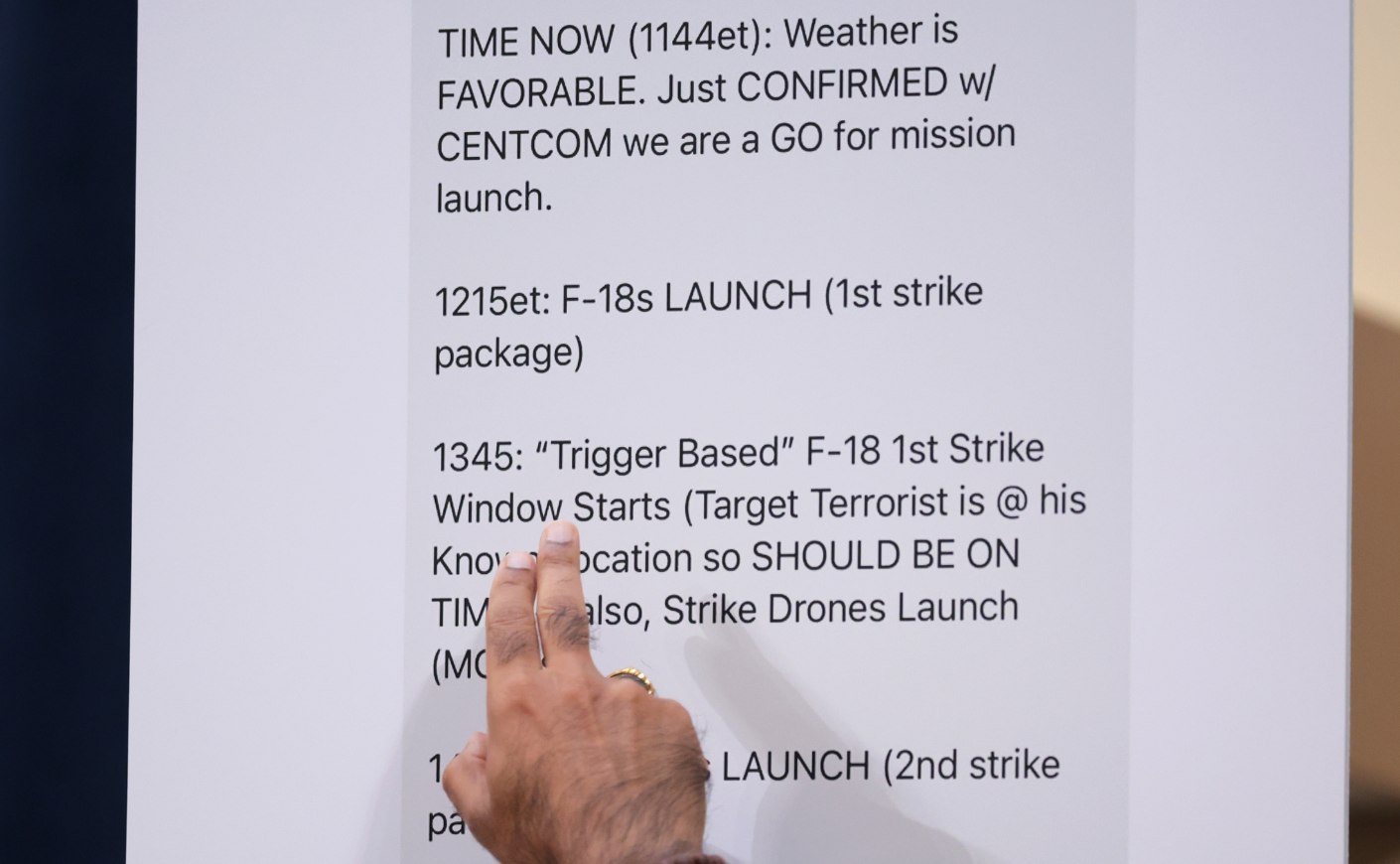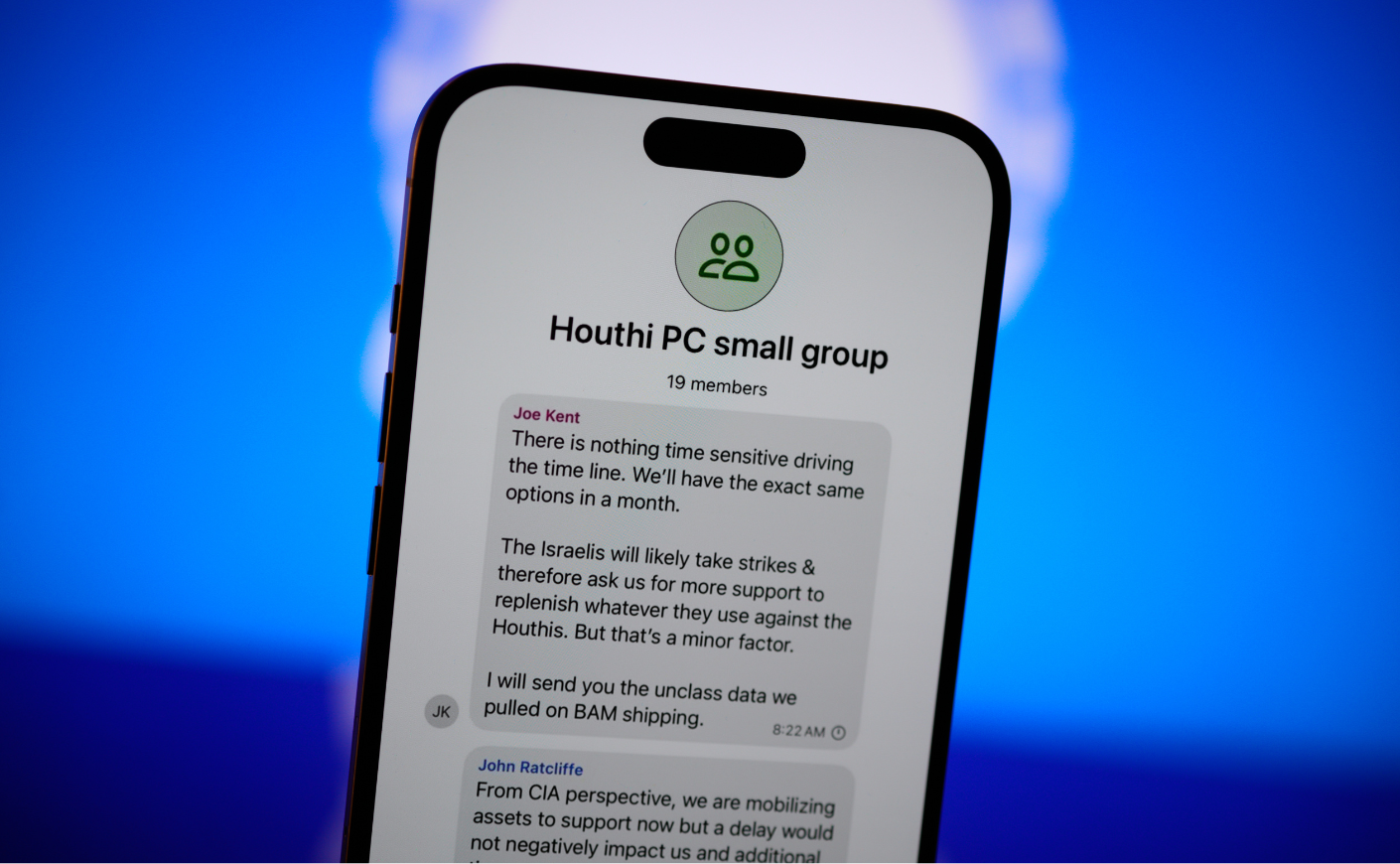The Trump administration is scrambling to contain the fallout after a journalist was accidentally added to a highly sensitive group chat on the encrypted messaging app Signal.
On Wednesday, top intelligence officials, including Director of National Intelligence Tulsi Gabbard and CIA Director John Ratcliffe, returned to Capitol Hill to give their annual report on national security threats. But much like their Senate appearance the previous day, things quickly took a turn during the House hearing.
Jeffrey Goldberg, editor-in-chief of The Atlantic, published a piece on Monday revealing how he was unexpectedly added to an 18-person Signal chat with top Trump officials about military strikes in Yemen earlier this month. Goldberg wrote that he "didn't think it could be real" before he recognized the gravity of the situation. The National Security Council has since confirmed the messages appear to be "authentic" and pledged to investigate, though President Trump has downplayed the incident as a "glitch."
But Gabbard and other officials insist no classified information was shared on Signal, raising questions about what, exactly, constitutes sensitive communication. Lawmakers are now pushing for greater transparency on how such incidents are handled and what safeguards are in place.
Disagreements over what counts as classified
Speaking before the House Intelligence Committee, Gabbard admitted it was a "mistake" that Goldberg ended up in the Signal chat in which cabinet members discussed plans to attack Houthi rebels in Yemen. Still, she defended national security advisor Mike Waltz, who is believed to have accidentally added Goldberg to the conversation. Gabbard said Waltz had taken responsibility and maintained that no classified information was disclosed.
"The conversation was candid and sensitive," she said, adding, "but no sources, methods, locations, or war plans were shared."
Ratcliffe echoed this defense, arguing that using Signal for sensitive discussions was "appropriate" and that the controversy has overshadowed the success of the military operation. "What is most important is that the mission was a remarkable success," he told lawmakers. "That’s what did happen, not what possibly could have happened."
But Democrats weren’t convinced. They pointed to chat messages released Wednesday by The Atlantic, which had previously been withheld, showing senior officials discussing military strategy in detail — including a timeline of the planned strikes and a list of weapons to be used, such as F-18 fighters, MQ-9 Reaper drones, and sea-launched Tomahawk missiles. Lawmakers on the left argued that the leak could have compromised the mission or even put soldiers' lives at risk.
"I've seen things much less sensitive be presented to us with high classification," said Democratic Rep. Joaquin Castro. "And to say that it isn't is a lie to the country."

At one point, the hearing became heated when Democratic Rep. Jimmy Gomez questioned whether Defense Secretary Pete Hegseth had been drinking during the chat.
"I think that’s an offensive line of questioning," Ratcliffe shot back. "The answer is no."
Democrats call for Defense Secretary Pete Hegseth's resignation
Hegseth was not among the officials testifying on Capitol Hill, but on Wednesday, several Democratic lawmakers called for him to resign over the incident.
"Classified information is classified for a reason," Democratic Rep. Raja Krishnamoorthi said on X, moments after the hearing. "Sec. Hegseth was openly sharing classified materials on an insecure channel that potentially endangered service members. And then he lied about it. He should resign."
Colorado Rep. Jason Crow agreed, saying, "There can be no corrections until there is accountability."
In a letter to President Trump on Tuesday night, House Minority Leader Hakeem Jeffries also called for Hegseth’s removal. "Pete Hegseth is the most unqualified Secretary of Defense in American history," he wrote. "His reckless actions have put American lives at risk."
So far, no Republicans have called for resignations, though some have criticized the administration’s handling of the situation.
GOP Rep. Roger Wicker, chair of the Senate Armed Services Committee, argued that the details of the Yemen operation should have been classified and emphasized that intelligence officials must come clean. "I make a lot of mistakes in my life, and I’ve learned that the best thing to do is own up to them and say, 'I’m human. I made a mistake,'” Wicker said. “I’m just glad no real damage was done this time.”
Similarly, GOP Rep. Don Bacon stated that the White House’s denial that the chat contained sensitive data is damaging its authority. "They should just own up to it and preserve credibility," Bacon told The Hill.









